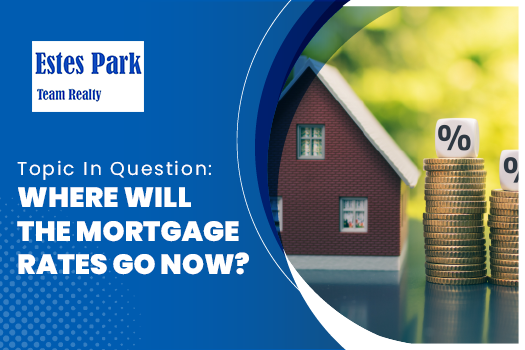With housing prices continuing at record high prices and still going up, mortgage rates are now starting to climb. The days of record-low mortgage rates are over. It is unknown how this will affect the overall housing market. And many are wondering where the mortgage rates will go now.
Record Low Mortgage Rates
After enjoying record-low mortgage rates in 2020 and 2021, rates are starting to climb again and quicker than the experts expected them to rise. In January 2021, mortgage rates were at historically low rates, with the average 30-year fixed-rate at 2.65%.
These low mortgage rates, combined with a very little housing supply, caused a supply and demand problem for the housing market. There were far more home buyers than homes available. And to make matters worse, corporations were buying homes for rental properties at a record pace.
Record High Home Prices
Home prices have been soaring in value for the past several years. With the prospect of rising mortgage rates, potential home buyers are scrambling to lock in a new home purchase now before rates increase further. In March, home prices hit another record high, with the average price in the U.S. at $375,300, which is up 15% from a year ago.
In some cities, the price increases are even larger. In Denver, the average price of a home increased by over $100,000 in just one month, from February to March 2022. The average price of a single-family is now over $900,000 in Denver.
Since the pandemic, many employees have decided to continue working from home. Because of this, employees have been leaving higher-priced cities for more affordable areas. Near Denver, many are looking for homes for sale in Estes Park or other nearby mountain communities.
Where Will Mortgage Rates Go now?
Since January of this year, the 30-year fixed-rate mortgage has increased from 3.22% to 5.28% in late April. Inflation is the main story and has risen at a rate not seen since the early 1980s.
With rising inflation, the Federal Reserve has already raised the rate by 0.25% and is expected to raise rates six additional times this year. Mortgage rates loosely follow the U.S. 10-year Treasury note. The 10-year note is considered a risk-free investment, and a mortgage has some risk, which is why the 30-year mortgage rate is usually higher than the 10-year Treasury.
Most experts believe that mortgage rates will continue to increase, but not as quickly as we’ve seen in March and April. The rapid increase in housing prices is a part of the inflation problem in the country. With the Federal Reserve raising rates to fight inflation, it is also hoped that it can also reign in these unsustainable high prices.
The Mortgage Bankers Association believes that mortgage rates will be around 4.8%, while others think they will end the year at around 5.4%. Some experts thought that the rates would hover near 4% to 4.5%, but as we are seeing in April, rates have exceeded that mark.
The one thing experts agree on is that they do not expect mortgage rates to come down any time soon. And it is important for all homebuyers to shop around for the best rates.


